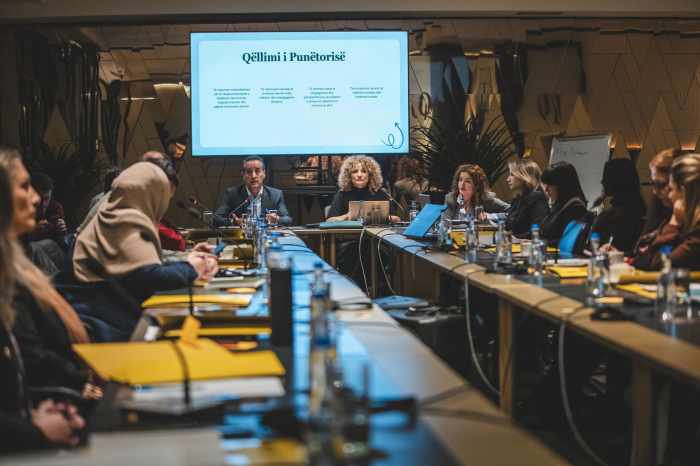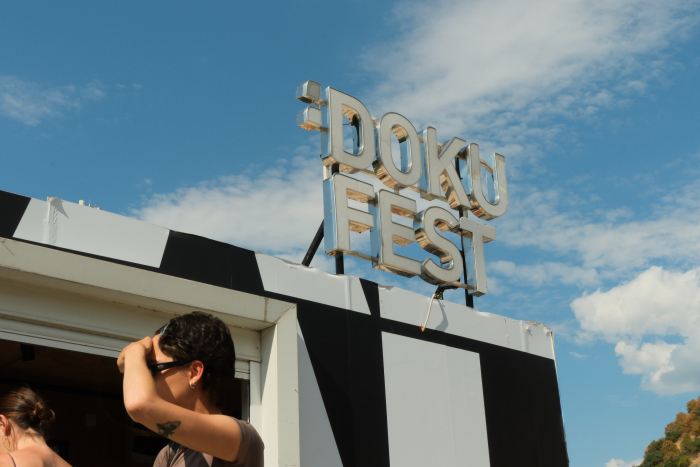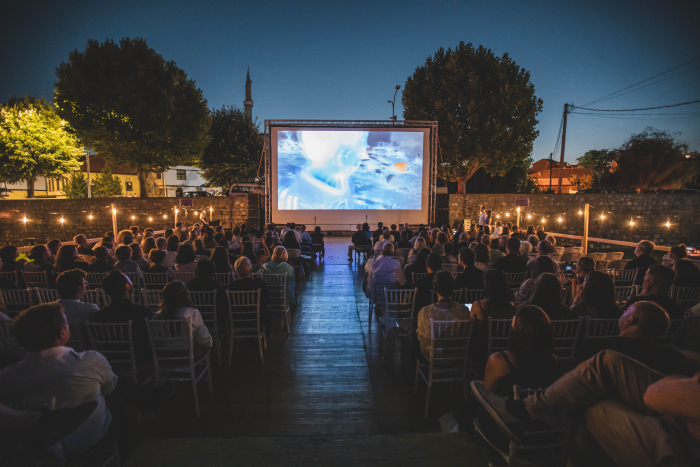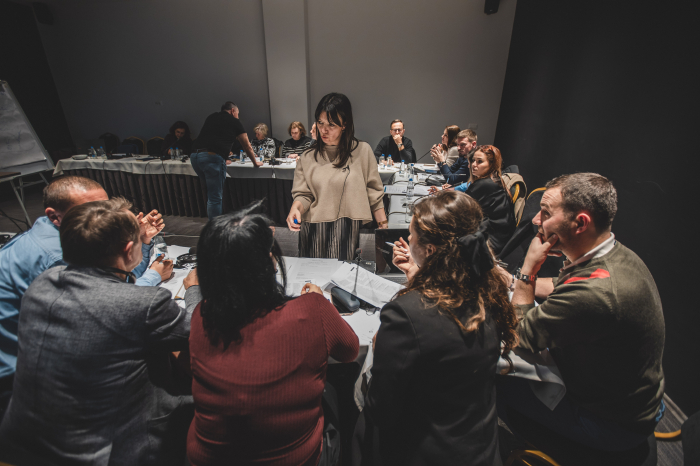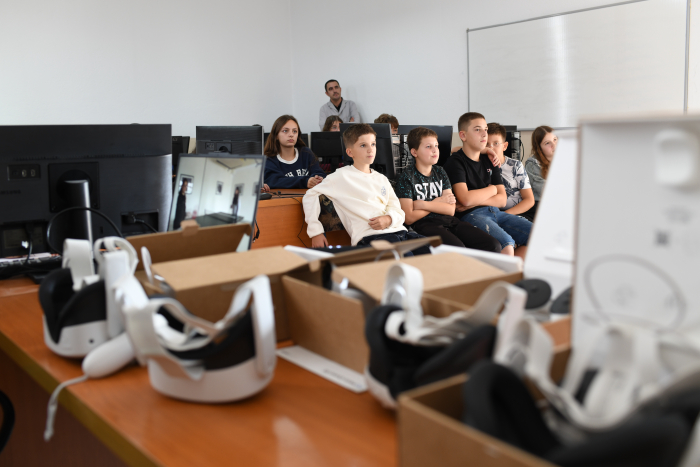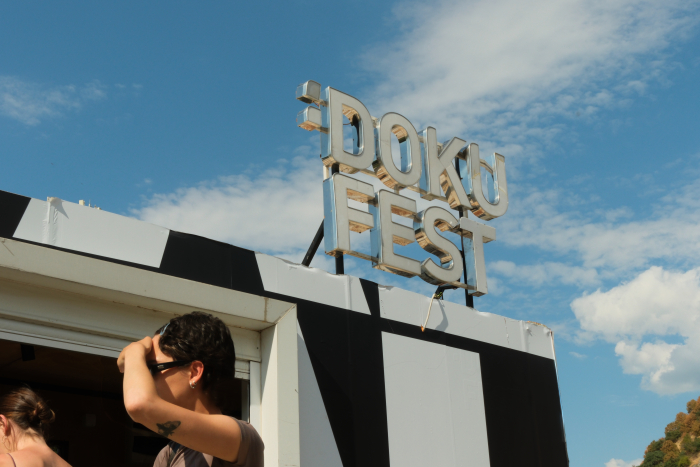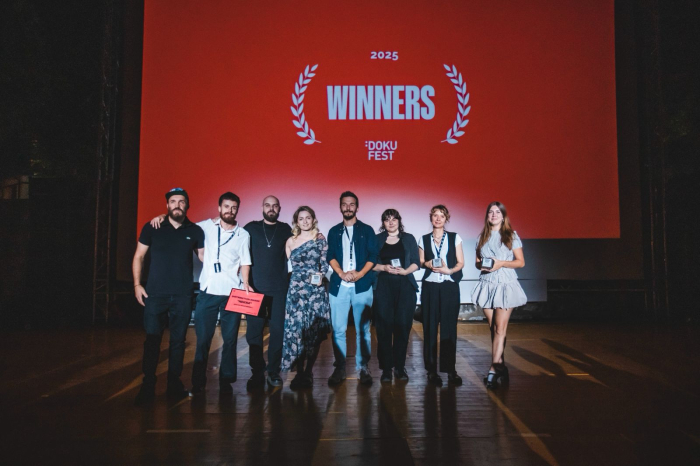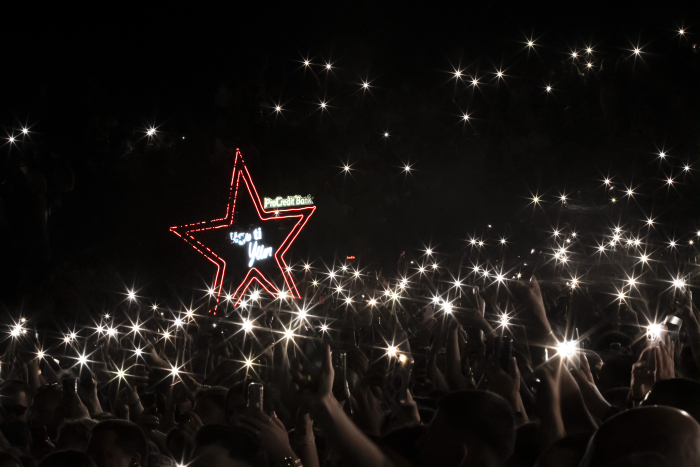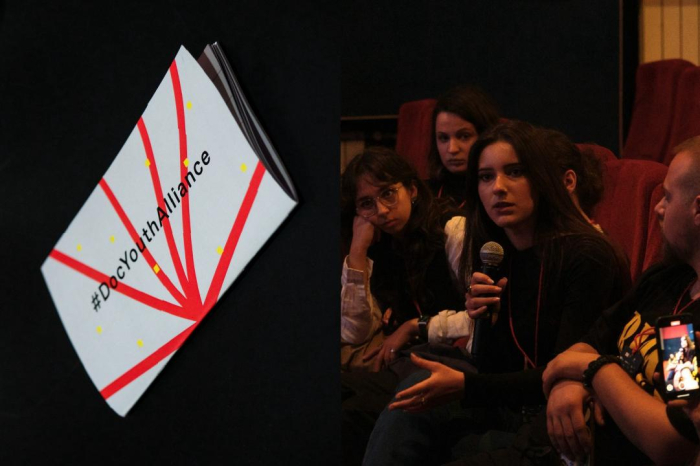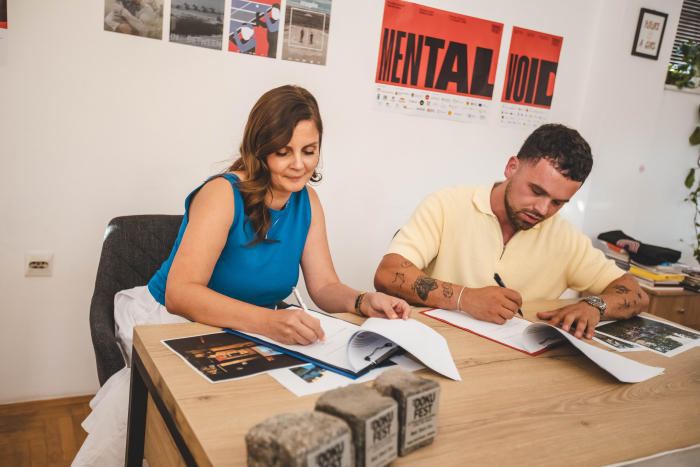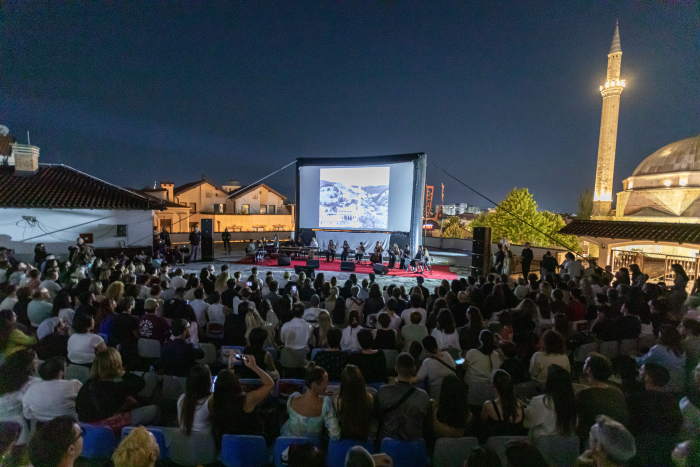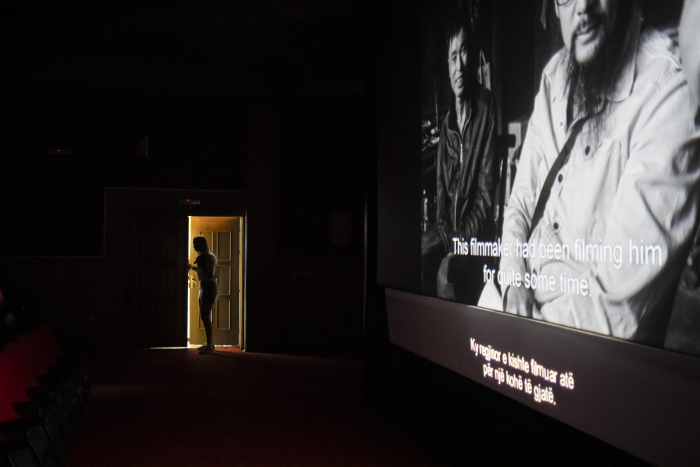August 8, 2019

After a dual premier at the 2019 Sundance Film Festival and the Rotterdam International Film Festival, Popakul’s latest techo-infused tale reveals the attraction and repulsion of rave culture. Somewhere in Eastern Europe, a girl called Young hitchhikes. It’s not clear where she’s going, or why she’s left, but she ends up in van belonging to psychedelic grunge punk Skinny.
DokuDaily: The time period of your film is ambiguous; did you have a specific moment of human history in mind?
Tomek Popakul: It’s the 90’s, but not. People have mobile phones and tattoo’s and stuff, which isn’t super 90’s. But I think I wanted more or less to depict this feeling when everything is a little bit more wild and fresh. Less industrialized, into a business. The film is based on interviews I did with people who started establishing this scene in the ’90s, in Warsaw. It’s based on my own experiences as well, which is more recent. You can still find a lot of illegal things, in a forest.
The 90’s nostalgia is also about a time when I was younger. Everything was much simpler, there was a lot more hope. Especially for people in the Eastern Bloc, this wave of freedom after the fall of communism came with…
…a sense of catharsis?
Yes. People were very hopeful and expecting some brighter future to come. I think that was the expectation.
How does the dream matchup with the reality?
We didn’t know capitalism that well, and how it would change our lives. As you grow up, you begin to see things in more details and begin to know the darker parts of everything. It’s a movie about disillusionment, or getting a higher consciousness where you’re not so naïve anymore. Even in this particular music scene, people would assume everything will change in this modernized hippy movement. A dancing utopia, where people will learn to change and live differently. That’s the expectation, and then the reality is that you still need to deal with all of the dark(er) parts of human nature.
Do you identify as Skinny, or Young?
The two characters are two sides of me. The girl is me when I was younger, and the guy is me as I’m older. There’s the more naïve and introverted side, and then the grumpy part.
The older part of you gets jealous of the younger part of you?
Yes. Exactly. It’s kind of like, vampires over youth.
We don’t know where Young is going, or why she’s left. The only clue I saw was her red knuckles, which could be defensive wounds. Why did you put that kind of detail in her hands?
The main inspiration for that was adding some detail to this pale character, some blood under the skin. Some life, some biological details. I didn’t think of it in that way, but film critics always see these kinds of details. This happens to me all the time, I unintentionally or unconsciously put in some details without realizing the broader context that can play into.
I spoke to an animator in Peja recently, at Anibar, and he spoke about how when you’re animating you get into this meditative state. It’s so repetitive, and then details emerge from your subconscious, that you don’t realize were there.
True. The subconscious always plays into my filmmaking. For me, it’s always quite a long process, and you realize that the person you are now is different from the person who wrote the script. You discover all these unconscious threads in your mind, that you didn’t realize during the production of the movie.
With things coming out, that you didn’t realize were there, has that ever led to shame?
Yes. Definitely. But at the same time, that’s a part of the process. One of our professors told us, in film school, when this guy had this idea but was embarrassed to put it out in the open. The professor started to yell at him like, what do you think I want?! Do I want to see a film that you’re not ashamed of?! That was his main statement, that you should always tackle topics that make you uneasy and shameful. Things that are hard to talk about. Cinema is a good medium for that. You all go into the dark room. You watch something in silence, you can’t see each other’s reactions. You can process things that you can’t normally speak about, or normally don’t want to admit. I deal with these shameful parts of myself, through my films and through my characters.
What about pride? Do you have any pride in your work?
I mean, as a nerd and someone who doesn’t have heaps of self-esteem, the validation from film festivals is some kind of objective proof that you did something right. I wouldn’t call it pride, but it’s not bad. A sense of achievement, maybe, but I’m trying not to be too hyped about it. Independent animation is a very niche world.
Acid Rain is a trip with no destination, is that how you see your life?
Yes, kind of. Life is a strange experience, and if you try to make sense of it, you get lost. One of the messages I wanted to pass, maybe a little, was that no one knows how to live. You need to find your own way, on your own. In the beginning, Young is stuck to Skinny. In the end, she’s more independent, with a higher consciousness. In the end; know yourself, know your friends, know your family and know that your gurus are dealing with the same questions. Like, what’s the meaning of life? What’s the aim? Nobody knows that. And nobody can tell you that, except yourself.
Final screening: 08 Aug, 12:00, Shtëpia e Kulturës
Popakul will be present for post-film Q&A.
